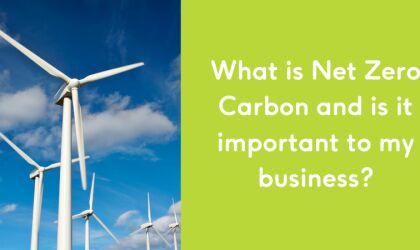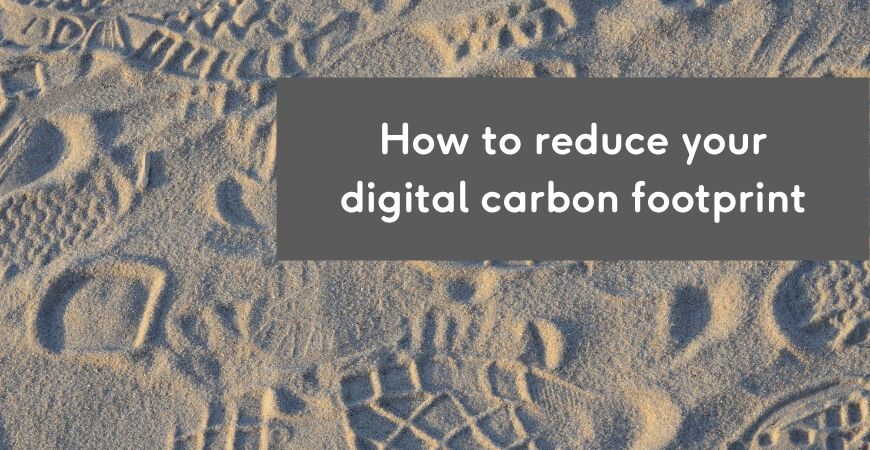

Wed 20 / 10 / 21
How to reduce your digital carbon footprint
Every time we use the internet, a small amount of carbon is emitted. So, if a business has a website, uses email or social it has a digital carbon footprint. Rebecca Kimber of Create.net has shared her starting tips to reducing your business' digital carbon footprint.
By Rebecca Kimber of Create Website Builder
When it comes to environmental issues we're swamped with news about plastic pollution, aviation and cutting back on meat and dairy. The latest Netflix series you're watching, or the email you just cc'd to colleagues is likely not on your radar as something contributing to the climate crisis.
This is probably because what happens behind-the-scenes to make the internet work is rarely physically seen. It is however a massive infrastructure of computers that requires enormous amounts of power to run 24/7, and most of this currently comes from fossil fuels.
You'll probably be surprised to hear that in 2018 the carbon emissions of our internet activity and infrastructure surpassed that of the aviation industry, and it's growing every day.
Whilst this might sound like doom and gloom there are always opportunities. Optimising your website is one - you can reduce the power it is using, increase the speed it loads at and cut your business’ CO2 emissions. Plus, it’s likely to give your SEO rankings a boost, have visitors staying around longer and positively impact sales enquiries.
Email is another area where it's easy for us all to take action to make a collective difference, because of its huge environmental impact. If everyone in the UK sent one less email each day we would save over 16,000 tonnes of carbon a year, equivalent to thousands of flights.
Here are five other simple ways you can cut down emissions from your emails:
- Delete old emails. Make it a habit each day to clear Sent Items that just say “thanks” or that you won't need again. Don't forget to empty the Deleted Items bin regularly too.
- Set your email client to never download images, this gives you control to hit the download button only if you're interested, and it saves energy. It protects you from tracking pixels too.
- Unsubscribe from email notices and newsletters that aren't relevant anymore.
- Try to limit sending large attachments and consider how many colleagues really need to be cc'd.
- If you have an email signature consider if you need all the logos or images and check if they can be optimised to a smaller file size.

Rebecca Kimber is CEO of Create.net, a Brighton-based company enabling small business owners to design their own websites. She's leading a Bite-sized Learning session for Brighton Chamber on 27 October: How to reduce your digital carbon footprint.
To find Rebecca's session, and more business training and support, head over to the Brighton Chamber events page:
If you want to contribute to the Chamber blog, contact us on hannah@brightonchamber.co.uk



